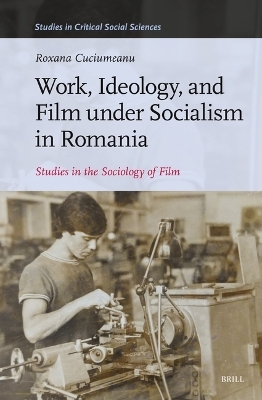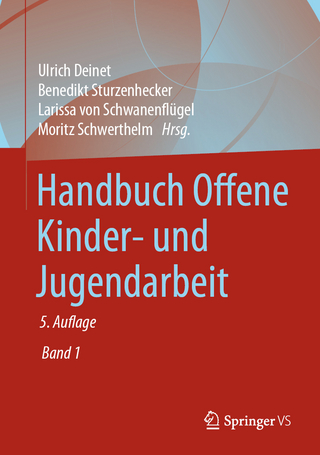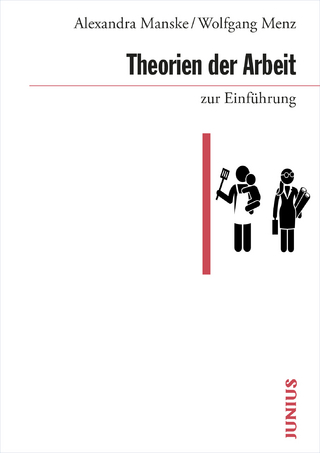
Work, Ideology, and Film under Socialism in Romania
Brill (Verlag)
978-90-04-70224-0 (ISBN)
Work, Ideology, and Film under Socialism in Romania examines the cinematic architecture of work imaginary as developed through films produced between 1960 and 1989. This book provides rich insight into the intimate configuration of cinematic thinking of work and displays of this form of social life, with focus on the relationship between conceived and lived ideology of work during socialist modernization, on the relationship between individuals and political power in the (reflexive) experiences, and contexts of work.
Roxana Cuciumeanu has a Ph.D. in Sociology (2012) from the National University of Political Studies and Public Administration (SNSPA Bucharest) and is lecturer at the same university (SNSPA, Faculty of Political Science). She is interested in visual/film sociology, ideology and political culture, work and urban sociology, and research methods in the social sciences.
Acknowledgements
List of Illustrations
List of Films and Directors
Introduction
1 Work, Modernity, and Film
1 From Furniture on Fire to Image Reversibility
2 Images of Work and Social Contexts that Produce Images of Work
2 Film as Instrument of the Sociological Imagination
1 Film towards a Quality of the Mind
2 The Dramatized Construction of Reality
3 Structural Components of Film Mechanism
3 Work and Ideology
1 Work: Etymological Roots, Semantic Structures, and Ideological Meanings
2 Work at Marx. Historical Concept and Practical Reality
3 Working People and Social Class(es)
4 Workers, Social Class, and “Socialist” Urbanization
5 Elements of Urbanization in Romania
6 Elements of Work System
4 Work and Socialist Realism
1 Social Value of Work. Preferable Modes and Desirable End-States
2 Working People and the Role of Art in Socialism
5 Image and Elements of Film Language
1 Image Concept and Cinematic Structure
2 Filmic Narrative: A What and a Way
6 Sociological Approaches to Film
1 Thinking the Film: Crystallised Images of the Real
2 Sociology and Film. A Historical Perspective
3 Film as Economic Production
4 Film as Social Institution
5 Film as Cultural Industry
6 Film and Representations of the Social
6.1 Siegfried Kracauer and the Discovery of the Non-visible Realities
6.2 Marc Ferro and Film as Witness: A Counter-Analysis of Society
6.3 Pierre Sorlin and the Filmic Construction
7 Theoretical Perspectives on Culture in Socialism
1 Marxist Foundations of Culture in Socialism. The Dominant Ideology
2 Vladimir Ilici Lenin and the Theory of Reflection
3 Antonio Gramsci and the Hegemonic Ideology
4 Louis Althusser and the Theory of Interpellation
8 Ideology, Art, and Culture in Socialism
1 Socialist Realism: From Cultural Doctrine to Political Strategy
2 Socialist Realism in România. Elements of Sociopolitical Context
3 Directions for Action in Film-Making Work
4 Unfortunate Events and Social Consciousness. Mangalia Theses (August 1983)
9 Actuality Film as a Matter of Realism
1 Here, Now, and the Future: Filmmakers as Historians
2 The Political Nature of Actuality Film
10 Film Culture and Its Economy
1 The Institution of Film in Post-war Romania. Elements of Film Repertoire
2 Film Economy under the Spectrum of Profitability
11 Cinematic Representations of Work
1 Physical Frames of Work
2 Apparent Indolents and Working Leaders: The Cinematic Division of Work
2.1 Images of Workers and Engineers: Producers of Means of Productions
2.2 Main Characters and Gender Configurations
3 Work Attitudes and Evaluations. Two Ideological Hypostases of Work
4 Working Subject and City Dweller between Hero and Marginal
5 Work and Social Space. An Ideological Pattern of Job Distribution
12 Domination, Hegemony, and Interpellation. Film and the Impossibility of Getting Out of Ideology
1 Film and Ideology: Two Constructions
1.1 Cave (Illusion): A Projection on Work and the City. The Mental Image of Work in the Context of the Visual Image of the City
1.2 The Ideological State Apparatus and the Counter-Analysis of Socialist Education: Work and the Process of Socialization in a Ciné-Verité Style
13 Evaluative Structures of Work in Seven Romanian Films
1 Diminețile unui băiat cuminte/The Mornings of a Good Boy (Andrei Blaier, 1967)
1.1 Workers and Intellectuals. Meanings and Significances of Ideological Constructions
1.2 Discourse on (Social) Other
2 Filip cel bun/Filip the Kind (Dan Pița, 1975)
2.1 Housing, Administrative Bureaucracy, and Social Inequality
3 Iarba verde de acasă/The Green Grass of Home (Stere Gulea, 1977)
4 Probă de microfon/Microphone Test (Mircea Daneliuc, 1980)
4.1 Looking for a Job
4.2 Figures of Work and Themes of Urban Centrality
4.3 Elements of the Social Condition of the Marginal
5 La capătul liniei/At the End of the Line (Dinu Tănase, 1983)
6 Faleze de nisip/Sand Cliffs (Dan Pița, 1983)
6.1 “Young Trees” and the “Forest Rot”
6.2 The Kid – A Young Worker at the Black Sea
6.3 A Counter-Analysis of the Official Critique of the Film
6.4 One Film. Multiple Discourses
7 Imposibila iubire/Impossible Love (Constantin Vaeni, 1984)
14 Conclusions/Open Ending
References
Index
| Erscheinungsdatum | 30.08.2024 |
|---|---|
| Reihe/Serie | Studies in Critical Social Sciences ; 289 |
| Verlagsort | Leiden |
| Sprache | englisch |
| Maße | 155 x 235 mm |
| Gewicht | 643 g |
| Themenwelt | Kunst / Musik / Theater ► Film / TV |
| Sozialwissenschaften ► Soziologie ► Mikrosoziologie | |
| Wirtschaft ► Volkswirtschaftslehre ► Makroökonomie | |
| ISBN-10 | 90-04-70224-5 / 9004702245 |
| ISBN-13 | 978-90-04-70224-0 / 9789004702240 |
| Zustand | Neuware |
| Haben Sie eine Frage zum Produkt? |
aus dem Bereich


